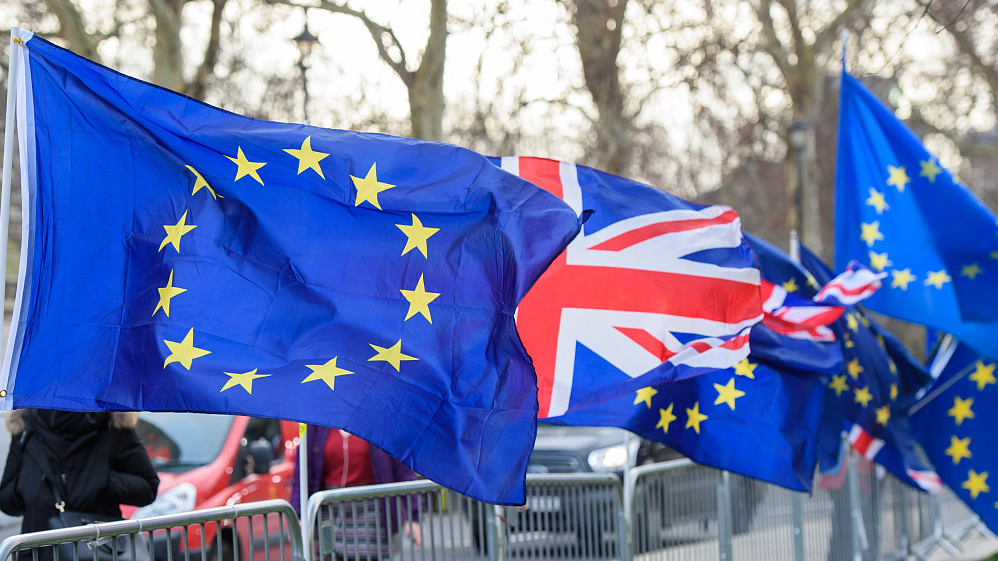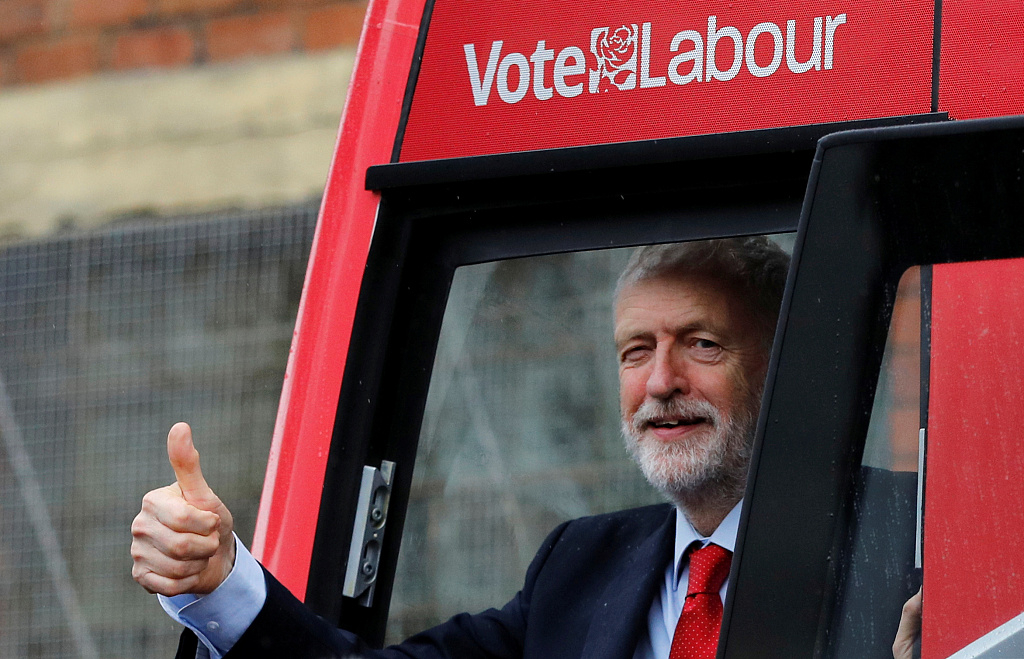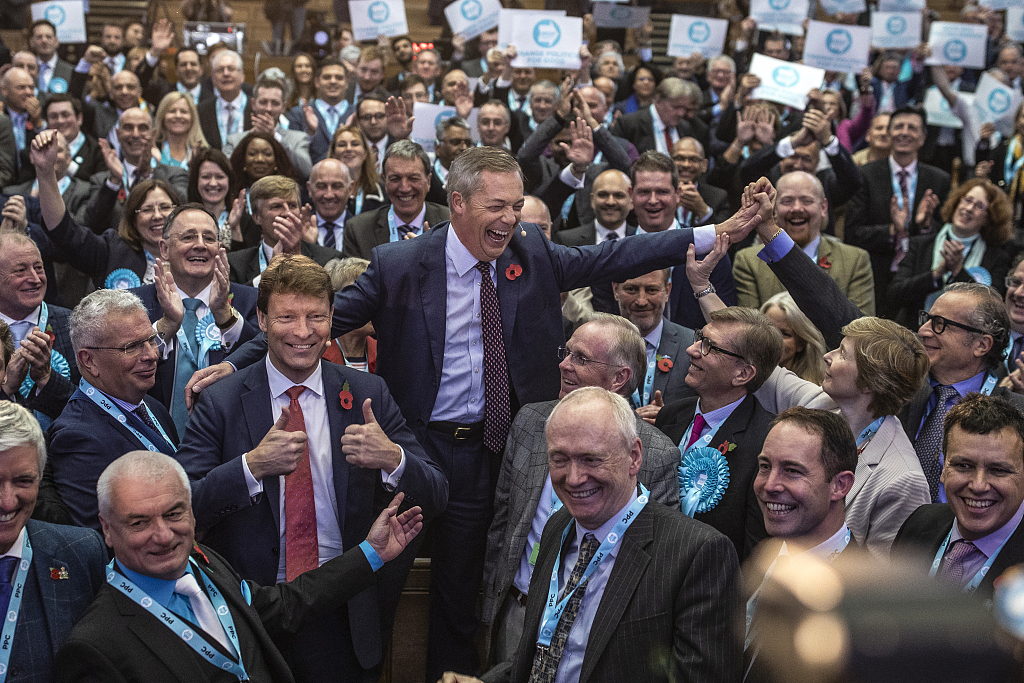
Editor's Note: Richard Fairchild is an associate professor at the Finance of School of Management at the University of Bath. The article reflects the author's opinions, and not necessarily those of CGTN.
With the British general election just around the corner, the major parties have begun their election campaigns, vying for power in the election battle.
Political analysts have argued that this election is different from previous general elections. Although the parties will be fighting on the traditional issues – public spending, NHS, workers' rights, economy - the political landscape is dominated this time by Brexit!
Some analysts argue that the public will be voting according to their Brexit preferences. Thus, the Conservatives have positioned themselves as the party that will deliver Brexit within three months of the election with their slogan being "Let's get Brexit done."
The Lib-Dems have positioned themselves at the other extreme, as the party that will revoke Article 50, cancelling Brexit, if they are elected. Labour has promised that they will negotiate a new deal with the EU in the first three months, and then offer a second public referendum on Brexit, with two clear choices, Brexit with the Labour/EU new deal, or remain.
This adds confusion in the minds of the voters. Do they vote purely on Brexit preferences, or do they vote on the other issues, such as the economy or public spending, that the parties put forward in their election manifestos?
There are, of course, some voters who are traditionally strong "dyed-in-the-wool" supporters of their favored party who will never change their ideological views. There are, however, many floating voters who may be pulled one way on Brexit issues, but another way on other policy issues.
For those voters, it is not so much about Party labels, but about an overall weighing-up, in their minds, of the Brexit issues versus the other issues.

Labour Party leader Jeremy Corbyn gives a thumb up as he unveils the party campaign bus in Liverpool, UK, November 7, 2019. /VCG Photo
Labour Party leader Jeremy Corbyn gives a thumb up as he unveils the party campaign bus in Liverpool, UK, November 7, 2019. /VCG Photo
The BBC News program on Thursday evening asked this very question: how will voters trade-off their Brexit preferences versus their preferences on other policy issues. They interviewed various members of the public about their voting intentions in the forthcoming general election, and this highlighted interesting dilemmas and tensions in their minds.
One voter said that she was a staunch supporter of Britain remaining in the EU, which would suggest that she may vote for the Lib-Dems. However, for her, the NHS, and providing support for poorer members of society was more important, and she would vote for Labour, even though they did not guarantee Britain remaining in the EU.
Another voter, a working-class factory worker, and a traditionally strong Labour supporter revealed that he was now "contemplating the unthinkable": voting Conservative to get Brexit done! For him, it was all about his Brexit preferences, ignoring the other issues.
The parties are recognizing this complex mix of voting motives: having laid out their Brexit positions, they are now emphasizing other policy issues. An interesting twist in this emerged on Friday, as the two major parties – Labour and Conservative – set out their public spending plans if elected on December 12, 2019.
After years of austerity under the Conservatives – public spending cuts, lowered government borrowing, lower standards of living, more poverty, "cutting our cloth," the Guardian noted on Thursday that "Labour and the Conservatives have triggered a public spending bidding war, promising massive programs of borrowing that will return public investment to levels last seen in the 1970s... on a day dominated by the ditching of austerity by both main parties."

Brexit Party candidates pose with leader Nigel Farage (C) in London, UK, November 4, 2019. /VCG Photo
Brexit Party candidates pose with leader Nigel Farage (C) in London, UK, November 4, 2019. /VCG Photo
This really has become a bidding game! The Chancellor, Sajid Javid, unveiled The Conservatives' plan to spend an extra 20 billion pounds on capital projects, such as railways, roads, schools and hospitals. Labour shadow-chancellor, John McDonnell "trumped" this by announcing that Labour would increase infrastructure investment by 55 billion pounds over the next five years.
Given this bidding game, will the Conservatives come back now with a new, improved offer of public spending? The Institute for Fiscal Services (IFS) doubts the credibility of the current figures, saying that "a future government might have trouble delivering projects on the scale envisaged."
An interesting aspect of this was emphasized by one commentator: Labour has always had the borrowing-public spending ideology – to help improve public services, and to help the poorer and disadvantaged members of society, and so Labour leader Jeremy Corbyn is probably announcing this massive public spending program for genuine reasons.
The conservatives have traditionally been the party of fiscal caution, living within our means, low public spending, keeping a tight rein on borrowing. Now, in the scramble for general election votes, they have ditched this policy in a public spending bidding war with Labour.
It has become apparent that the parties are now moving beyond Brexit issues in the vote-grabbing game!
(If you want to contribute and have specific expertise, please contact us at opinions@cgtn.com.)